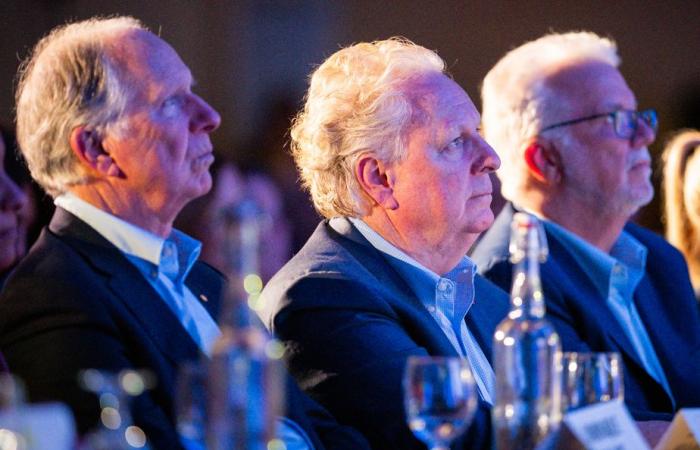(Ottawa) Donald Trump must be rubbing his hands to see Canadian politicians “running everywhere,” Jean Charest despairs. “That’s exactly what he wants!” », Exclaims the former premier of Quebec.
Published at 5:00 a.m.
According to Mr. Charest, suggesting abandoning Mexico is far from being a good strategy. “It seems to me that people in Canada are very quick to offer concessions. There, we know his way of negotiating: it’s to hit a baseball bat when leaving, establish your balance of power at the start and force concessions,” says the former leader of the Liberal Party of Quebec in a telephone interview. from Paris.
Yes, it will be necessary to negotiate, and yes, the threat of imposing tariffs of 25% on all Canadian products exported to the United States would have “disastrous consequences”. However, we must keep a cool head, believes Jean Charest, father of the Council of the Federation.
He sees misguided haste in the signal sent by the Council of the Federation.
Last week, before Donald Trump’s announcement, Ontario Premier Doug Ford said that all provinces and territories preferred to negotiate bilateral trade agreements with the United States and Mexico. In short, sign the death warrant of the Canada–United States–Mexico Agreement (CUSMA).
I am opposed to the idea of dissociating ourselves from the Mexicans at this stage. Honestly, I don’t understand why there is a rush to do this. It is too early in the strategy. This is the mechanics in which [Donald Trump] wants to hire us.
Jean Charest
And that’s without taking into account that “on a diplomatic level, to seem to abandon the Mexicans at the stage where we are, honestly, that lacks vision”, specifies the instigator of the Comprehensive Economic and Trade Agreement ( CETA/CETA) between Canada and the European Union.
An illogical measure
On the other end of the phone, Jean Charest rattles off a string of figures: 60% of the oil and gas that enters the United States comes from Canada, 75% of the vehicles that are assembled in Mexico go to the United States, 63% of Canada’s exports to the United States are inputs that go into American consumer products.
“Mr. Trump’s logic is based on an economy that no longer exists,” he insists. There is no one complex product that is made in just one country. It no longer exists. And Ottawa has many allies south of the border who are seizing it, and who can convince the incoming Trump administration to abandon punitive tariffs.
“Let Americans talk to Americans. It’s a question of strategy,” he says.
In 2018, the first Trump administration ignored criticism heard from both sides of the border, and imposed punitive tariffs on Canadian steel and aluminum products. “We responded dollar by dollar,” recalled Finance Minister Chrystia Freeland earlier this week.
Intelligence and spine
Conservative Leader Pierre Poilievre said he would also respond “if necessary.”
But we are not there yet, and in the meantime, the leader of the opposition is seeking to further weaken Justin Trudeau. “The Prime Minister is too weak to protect our economy against the threats of Donald Trump,” he argued on Wednesday, adding, in English, that “a leader with intelligence and a backbone” was needed.
“Where is the plan to put Canada first? », asked Pierre Poilievre.
According to a survey carried out by the Angus Reid Institute1the conservative leader would be more likely (38% of participants) than his liberal counterpart (23%) to do well with the future tenant of the White House.
But Jean Charest does not want to get involved in this debate. “I won’t go into partisanship issues. [Justin Trudeau] is the prime minister, period. He has legitimacy. If there is an election and a change of government, it will be another,” explains the man who lost to Pierre Poilievre during the conservative leadership race in September 2022.
“It’s not useful to do that,” he argues. We didn’t do this last time [pour la renégociation de l’Accord de libre-échange nord-américain, rebaptisé ACEUM]. Last time, we had an ecumenical approach, and that served us well. »
1. The survey was conducted online from October 24 to 26 among a random sample of 1,627 Canadian adults. For comparison, a probability sample of this size has a margin of error of plus or minus 2 percentage points, 19 times out of 20.






